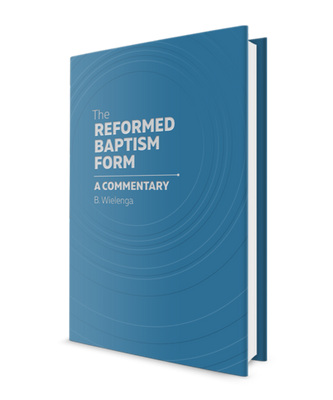Your cart is empty now.
The Reformed Baptism Form: A History from Dordt to today
Throughout the history of the baptism form, there have always been officebearers who attempted to omit parts of the form. These omissions happened in different ways. First, book publishers printed the forms in any way which they saw fit and not according to synodical decisions. Second, ministers regularly skipped parts of the form during the sacrament so that later church printings followed suit (often by placing the “undesirable” section in parentheses and then deleting it altogether without approval). Third, the modern church world has approved a brand-new set of liturgical inventions that have not come from Dordt.
In his book, The Reformed Baptism Form: A Commentary, Bastiaan Wielenga lists several instances where the original form has not been followed. The examples show how violence has been inflicted upon the form.















